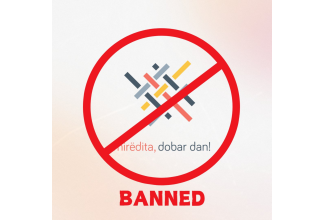Increased Threats Against Journalists Since the Independence
Independent journalists are exposed to increased threats and pressure since Kosovo declared itself independent in February 2008, according to partner organisations to the Swedish Helsinki Committee in the country. The latest in a series of examples is the assault on well known journalist Jeta Xharra. It is with concern that the Swedish Helsinki Committee notices the negative development and encourages the authorities to make a statement against the assaults on journalists.
“Freedom of speech is one of the ground pillars of democracy and if the government is serious about creating a democratic Kosovo governed by the rule of law we expect them to ensure that journalists have the possibility to work freely,” says Marie Månson, programme director of the Western Balkans.
This year on May 27 the regime friendly newspaper Infopress was found guilty, by the Kosovo Press Council, of defamation and threats against the journalist Jeta Xharra. Xharra is a well known media profile and host of the popular TV show ‘Life in Kosovo’. Often the show raises issues that can be considered controversial by the authorities in the country or by the public, for example discrimination against LGBT persons, corruption within the state apparatus or flaws in the legal system in Kosovo.
Articles in Infopress accused Xharra of being a Serbian spy wanting to downplay war crimes committed by the Serbs in Kosovo. In an editorial it was ascertained that ‘Jeta self has made sure to get a short life’.
“It is extremely important that the Press Council deals with this type of cases to increase the pressure on the media to respect press ethics. We have noted a turn for the better even if the situation is not satisfactory yet. The Press Council has influenced the written media to respect the press ethical code to a greater extent,” says Tilde Berggren, lawyer and programme officer for Kosovo and Macedonia, stationed in Skopje, Macedonia 2006-2009.
The Swedish Helsinki Committee collaborates with the Press Council in Kosovo since 2005 when we actively participated in making it legally possible for the Press Council to be founded. Today we support the work and development of the institution. The Press Council monitors that written media follow the press code in the country, observes the media situation in Kosovo and tries complaints against the written media in accordance with the press code. The Press Council in Kosovo has 13 permanent members who represent the largest newspapers in the country.


